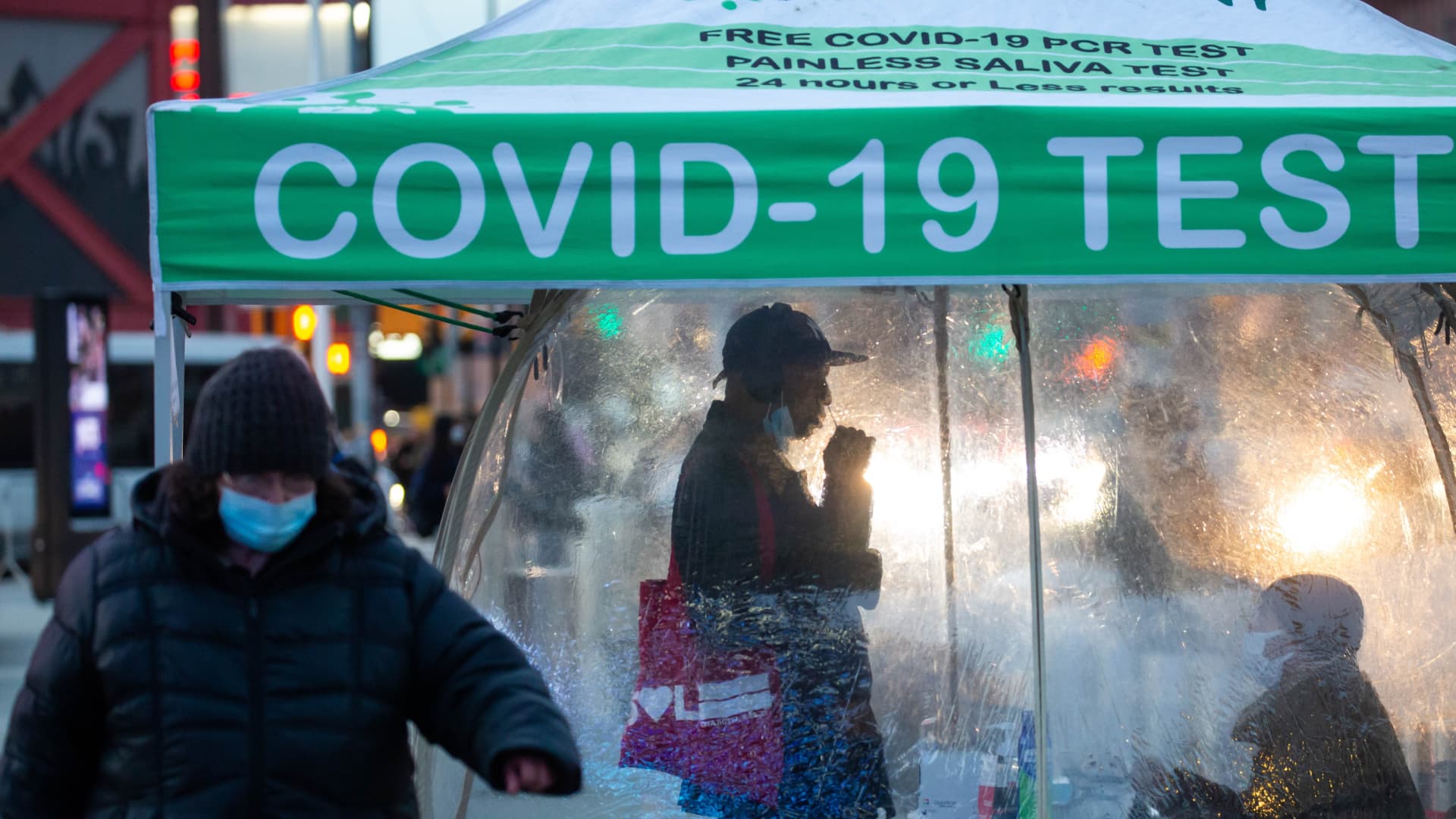The omicron-fueled U.S. surge in Covid-19 cases appears to be triggering a lower rate of hospitalizations than earlier waves, more evidence that the highly transmissible variant leads to milder symptoms than other strains.
The seven-day average of new cases hit 206,577 on Sunday, roughly 18% lower than the all-time high recorded on Jan. 11, according to data from the Centers for Disease Control and Prevention. Meanwhile, hospitalizations rose to a seven-day average of 8,964, only half their earlier peak recorded in January.
Early studies have shown omicron to be about twice as transmissible as delta, the once-dominant version of the coronavirus that now appears to be receding. Because the new variant spreads so easily, the U.S. will likely see continued increases in hospitalizations and deaths, though not as severe as during the delta wave that hit mid-year, said Albert Ko, chair of the department of epidemiology and microbial diseases at the Yale School of Public Health.
“We are seeing exponential increases in cases, and a much lower increase in hospitalizations and deaths,” Ko said in a phone interview. “But we still have 65,000 people who are currently hospitalized because of Covid, and we are having already 1,500 deaths a day.”
“This is terrific -- consistent with the evidence and data for contagiousness,” tweeted Ashish Jha, dean of the Brown University School of Public Health, who previously called for a shorter isolation period paired with a negative Covid test. “And exactly what our country needs right now.”
The CDC’s shift in guidance was motivated by science showing that the majority of coronavirus transmission occurs early in the course of the illness, in the first day or two before the onset of symptoms and the two to three days that follow, the agency said.
The CDC also updated its recommended quarantine period for people who have been exposed to Covid-19. For individuals who are unvaccinated, or for those who are eligible for a booster shot but haven’t yet received one, the agency recommends a five-day quarantine followed by strict use of a mask for five more days.
However, if a five-day quarantine isn’t feasible, an exposed person should wear a well-fitting mask, such as an N95, at all times when around others for 10 days after exposure.
Individuals who have received a booster shot don’t need to quarantine following an exposure, but should wear a mask for 10 days, the CDC said. If symptoms occur, individuals should quarantine until a negative test confirms that they don’t have Covid-19.
The Biden administration has recently been pushing to get booster shots into the arms of more vaccinated people, and the new guidance could entice more Americans to seek another dose of a vaccine. Just under one-third of fully vaccinated people in the U.S. have received a booster, according to the CDC.


